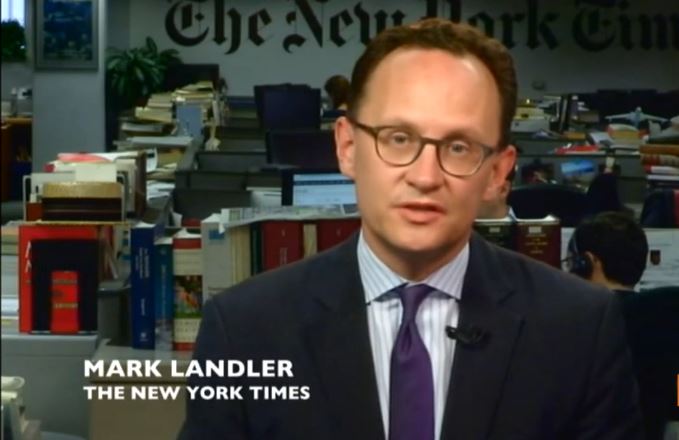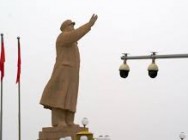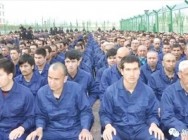It is not clear how Mr. Trump’s statement will affect Wednesday’s Chinese-American meetings. Secretary of State Rex W. Tillerson and other American officials had been planning to press their Chinese counterparts on North Korea. On Tuesday afternoon, senior officials said they were still trying to gauge the meaning of the president’s tweet.
Reports late on Tuesday of renewed activity at a North Korean nuclear site added to the sense of urgency, and underlined how China had failed to curb Mr. Kim’s provocative actions.
Administration officials said they were considering imposing so-called secondary sanctions on a variety of Chinese banks and companies with ties to North Korea. Such a step would greatly increase the pressure on Mr. Kim’s government, but it could also antagonize the Chinese government.
In the short run, Mr. Warmbier’s death from a brain injury suffered while he was a prisoner makes engagement with the North seem a more remote possibility. Mr. Trump has said in the past that he would be willing to meet with Mr. Kim if the conditions were right.
“Clearly, we’re moving further away, not closer, to those conditions being enacted,” said Sean Spicer, the White House press secretary. “I would not suggest that we’re moving any closer.”
But China’s failure to do more to pressure North Korea — which was little surprise to anyone who follows the issue — also leaves the United States with few better alternatives to diplomacy. Some American officials had hoped to use the secret negotiations to obtain Mr. Warmbier’s release as the predicate for a dialogue with the North on other issues.
The tension between those who want to shelve engagement and take a much tougher line on North Korea and those who want to continue probing for openings is reflected in the administration’s ambivalent response after Mr. Warmbier was flown home in a coma last week.
At first, the White House and State Department said very little about the case, beyond expressing relief that he had been reunited with his family. But as outrage over the death of Mr. Warmbier, a 22-year-old college student, grew on social media and cable television, both released statements late on Monday condemning North Korea for his treatment.
Even on Tuesday, however, Mr. Trump appeared to place more of the blame on his predecessor, Barack Obama, for failing to negotiate Mr. Warmbier’s release than on Mr. Kim. “It’s a disgrace what happened to Otto,” the president said. “Frankly, if he were brought home sooner, I think the results would have been a lot different.”
But even as he implicitly criticized his predecessor, Mr. Trump appeared to walk away from one of the biggest gambles of his presidency. At a summit meeting in April at his Palm Beach, Fla., estate, Mar-a-Lago, Mr. Trump tried to enlist Mr. Xi to ratchet up China’s pressure on North Korea — something China has historically avoided because of fears that it would precipitate a collapse in a country with which it shares a 880-mile border.
The president made Mr. Xi the centerpiece of his strategy for North Korea, agreeing to soft-pedal his complaints during the 2016 campaign about China’s trade and currency practices in return for Beijing squeezing its neighbor to curb its nuclear and ballistic missile programs.
“I explained to the President of China that a trade deal with the U.S. will be far better for them if they solve the North Korean problem,” Mr. Trump declared in a morning tweet a few days after the summit meeting.
As the evidence accumulated that China was taking only modest steps against North Korea, impatience with Beijing mounted inside the White House. But in his tweet on Tuesday, Mr. Trump seemed to take pains not to allow his disappointment to affect the relationship he has cultivated with the Chinese leader.
“The question we’ve all been waiting to have answered is, ‘When does President Trump realize that Xi Jinping is not going to deliver North Korea for him, and what does he do when that happens?’” said Ely Ratner, a senior fellow at the Council on Foreign Relations. “Otto Warmbier’s death accelerates that day of reckoning.”
The meeting in Washington is part of the Diplomatic and Security Dialogue set up after April’s summit meeting. It will include Mr. Tillerson and China’s top foreign policy official, Yang Jiechi, as well as Defense Secretary Jim Mattis and a Chinese general, Fang Fenghui. The four are expected to meet during the morning, hold a working lunch, break for the afternoon and then reconvene for dinner.
North Korea will top the agenda, but China’s increasing militarism in the South China Seas and other maritime issues, the fight against the Islamic State, and other possible military cooperation will also be discussed.
Some China experts said the administration could use Mr. Warmbier’s death as leverage to demand that China put pressure on North Korea to release three other Americans being held there.
“The Chinese will only spring into action if they recognize the status quo is unsustainable,” said Evan S. Medeiros, a former senior director for Asia in Mr. Obama’s National Security Council.NTS
Even apart from North Korea, relations with China could soon turn more contentious. Within days, the administration is expected to declare that foreign steel imports threaten the domestic steel industry. That will lead Mr. Trump to impose duties that will anger the Chinese, a major steel producer.
“This initial period of calm in the U.S.-China relationship was not sustainable,” said Eric Altbach, senior vice president at the Albright Stonebridge Group. “We’re reaching the end of the beginning for the Trump administration, and things are only going to get worse.”




















